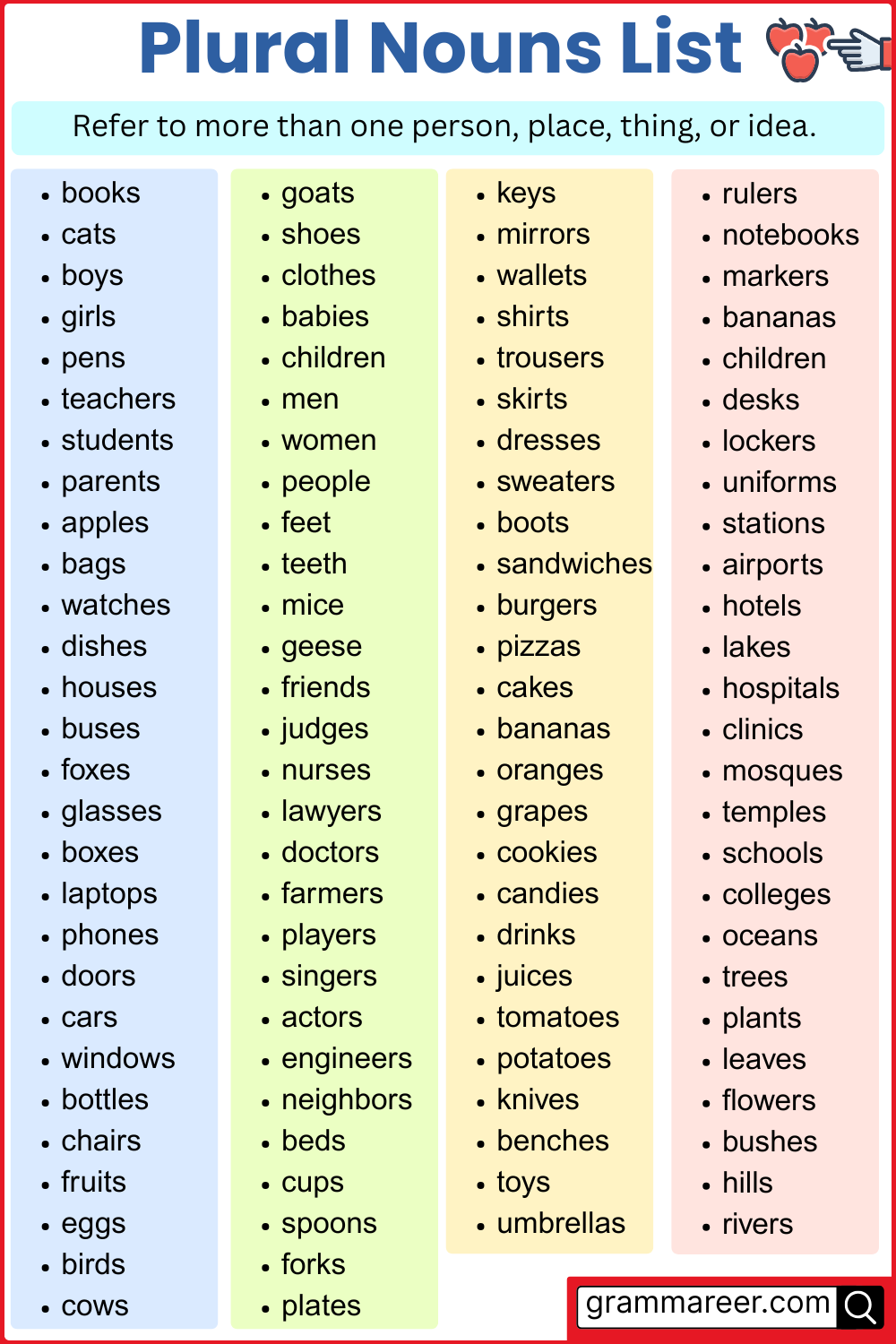One of the interesting aspects of the English language is the way in which words change form to indicate that there is more than one of something. These plural forms can sometimes be tricky to master, especially for non-native speakers. Understanding how to form plurals correctly is essential for effective communication in English.
Plural words in English are used to refer to more than one person, place, thing, or idea. They are formed by adding certain suffixes to the singular form of the word. While most plural forms are created by adding “-s” or “-es” to the end of a word, there are some irregular plurals that do not follow this pattern.
Regular Plural Forms
Regular plural forms in English typically involve adding an “-s” to the end of a singular noun. For example, the plural of “cat” is “cats” and the plural of “dog” is “dogs.” Similarly, nouns that end in sibilant sounds like -ch, -sh, -x, -z, and -s require the addition of “-es” to form the plural. For instance, “box” becomes “boxes” and “bus” becomes “buses.”
There are also some nouns that end in consonant + y, where the “y” is changed to “i” before adding “-es” to form the plural. For example, “city” becomes “cities” and “baby” becomes “babies.” It’s important to pay attention to these spelling rules when forming plural words in English.
Additionally, some nouns have irregular plural forms that do not follow the typical rules. For example, the plural of “child” is “children” and the plural of “foot” is “feet.” These irregular plurals must be memorized as they do not follow a consistent pattern.
In conclusion, mastering plural words in English is essential for clear and effective communication. By understanding the rules for forming plural nouns and memorizing irregular plural forms, you can improve your language skills and avoid common mistakes. Practice using plural words in sentences to reinforce your understanding and expand your vocabulary.
